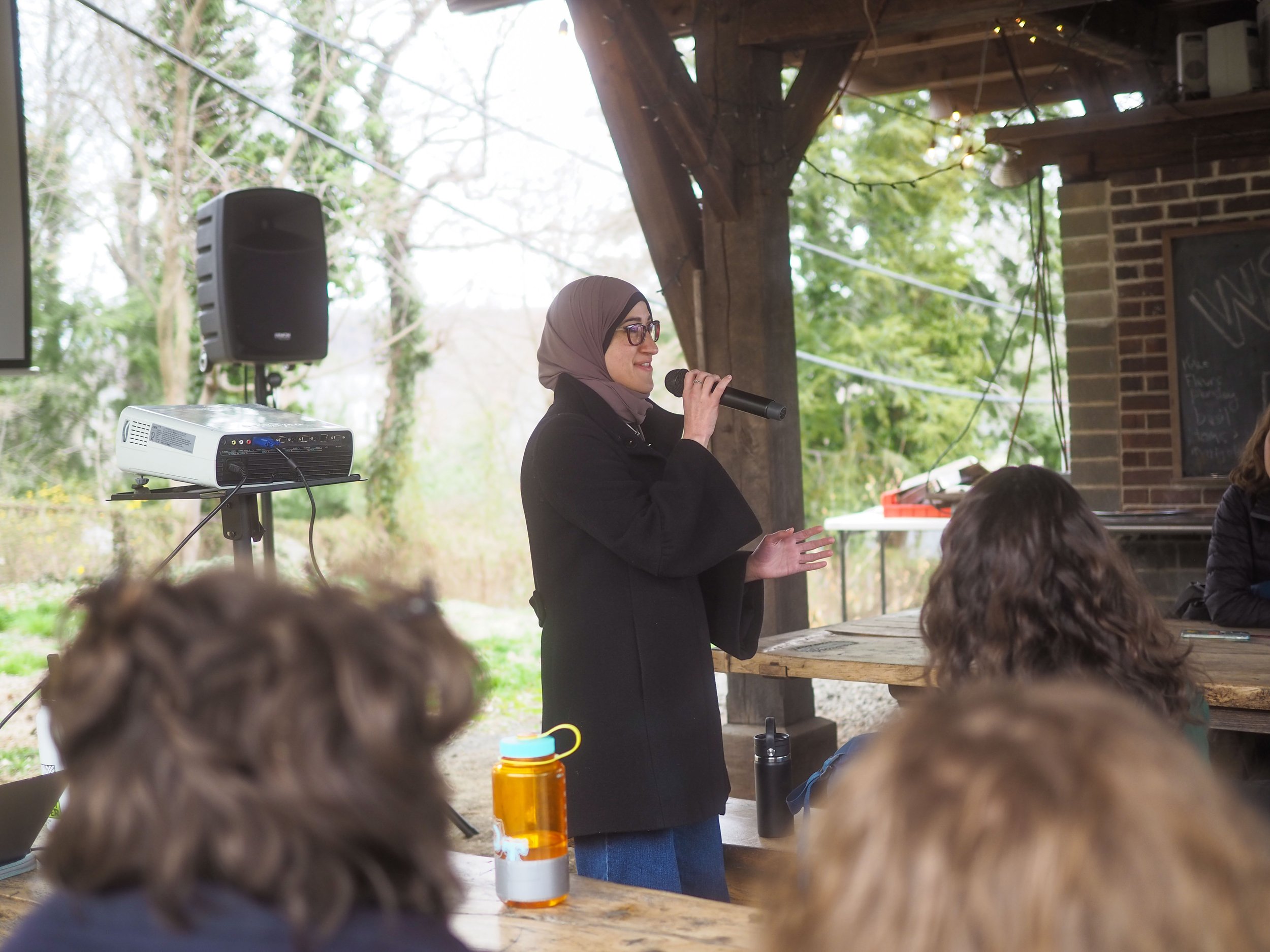
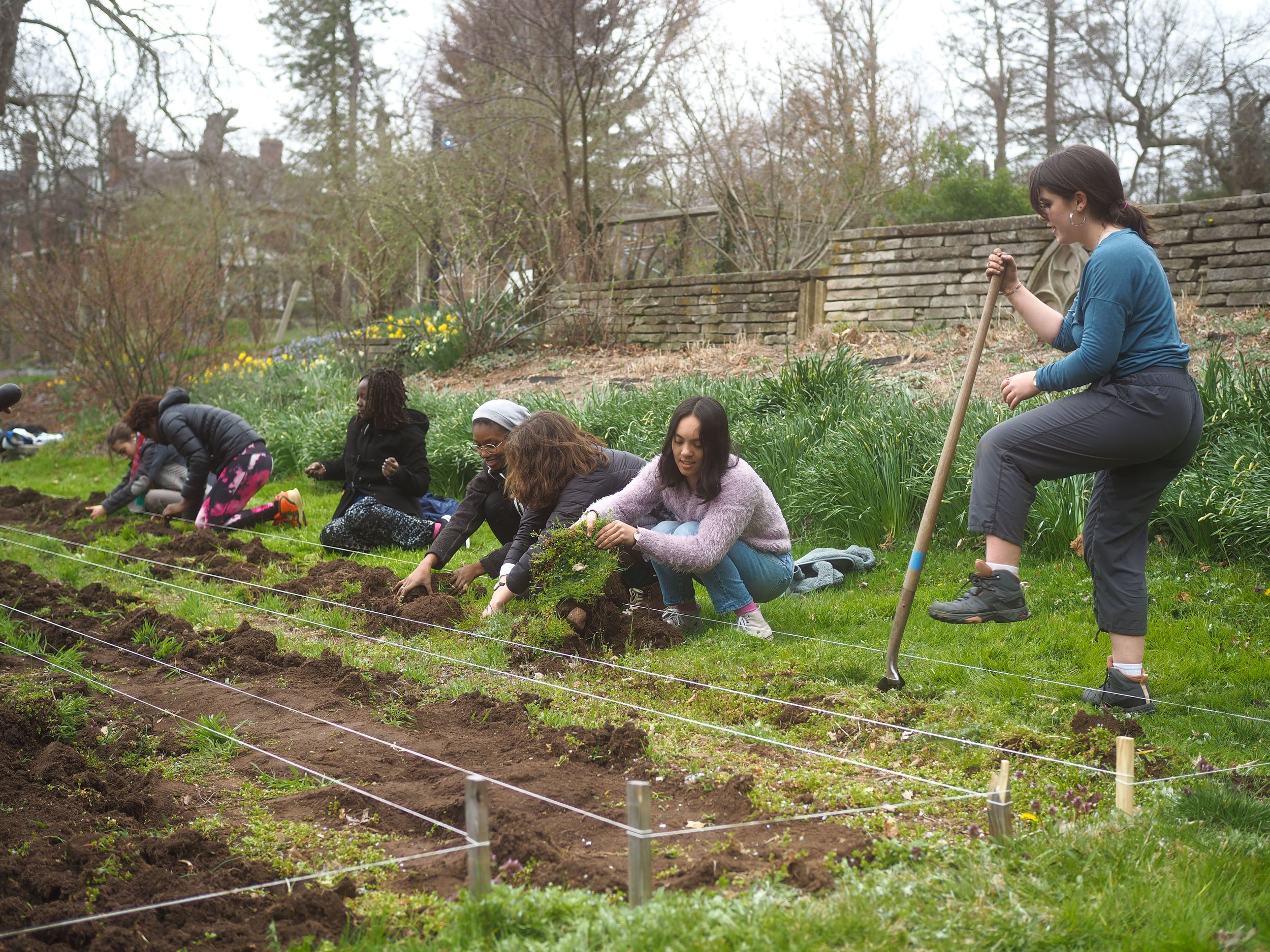
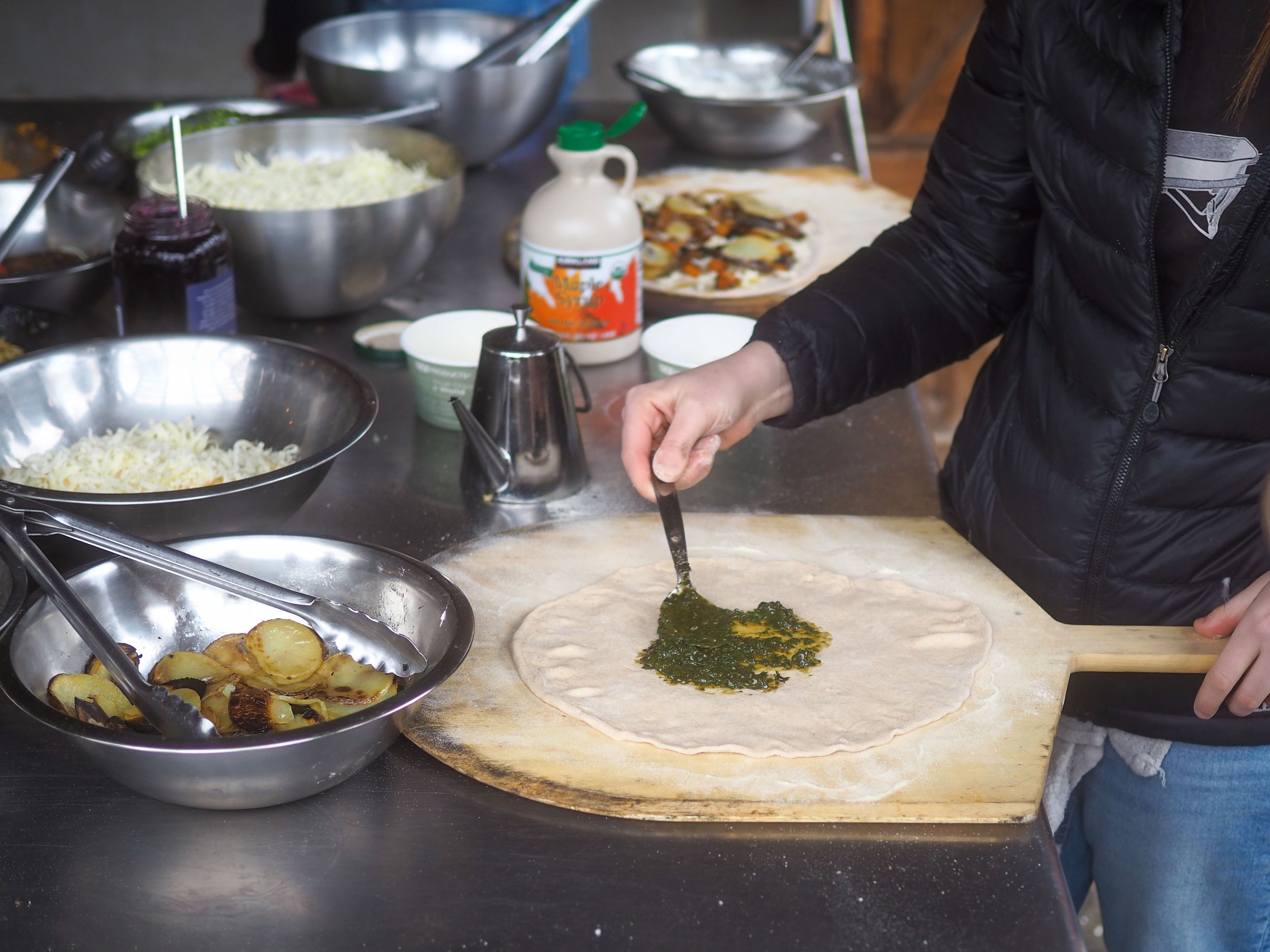
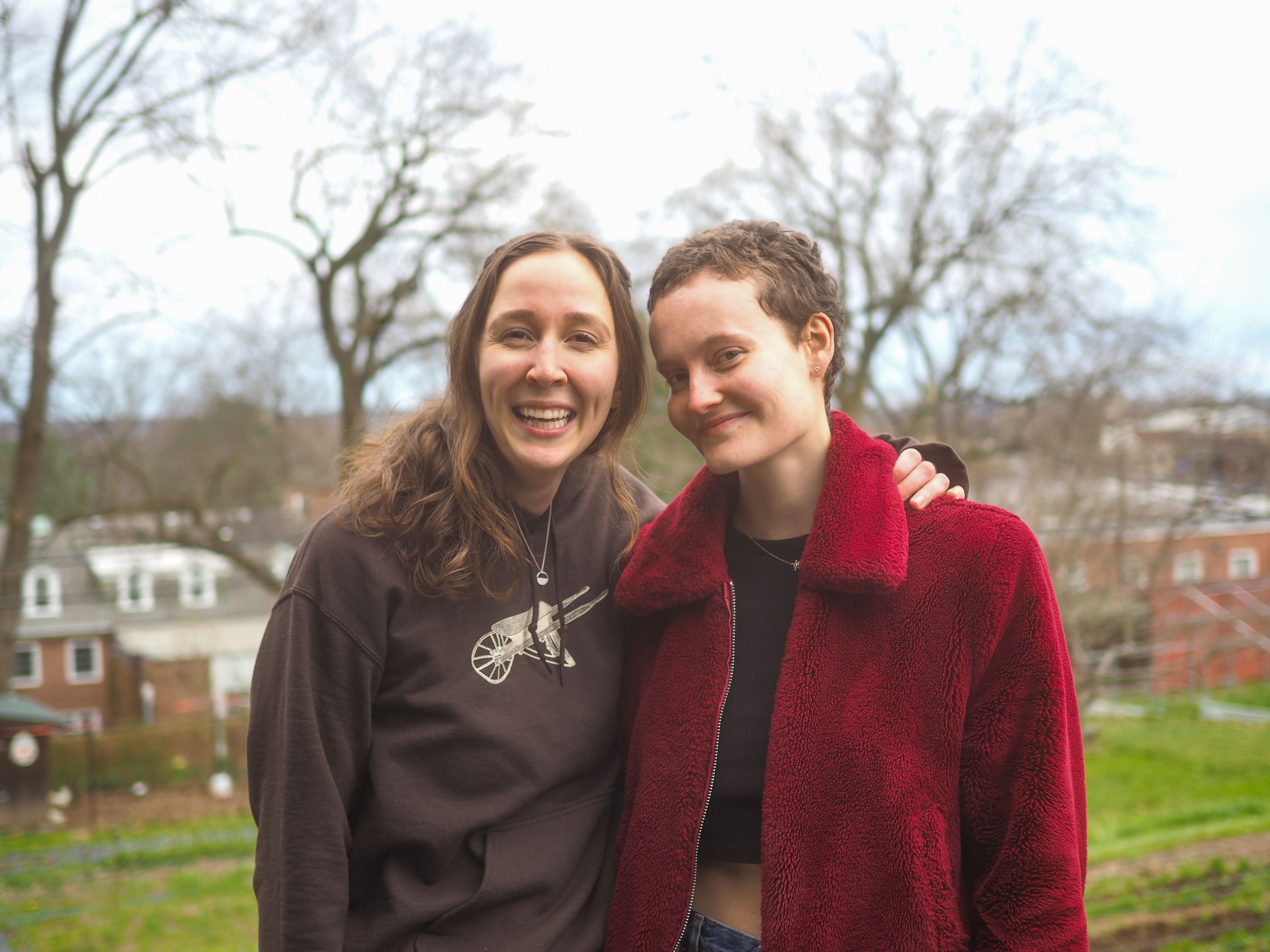
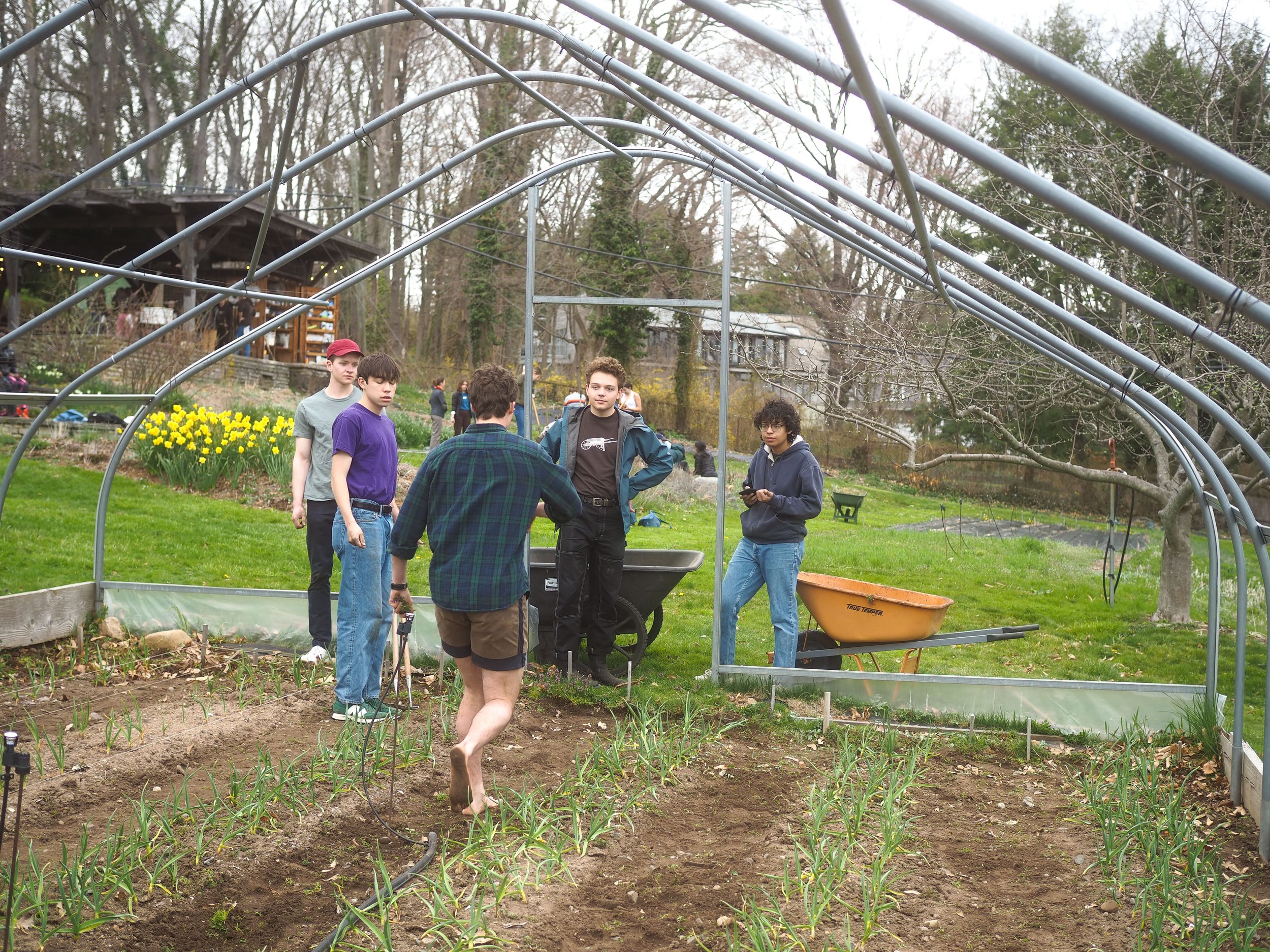
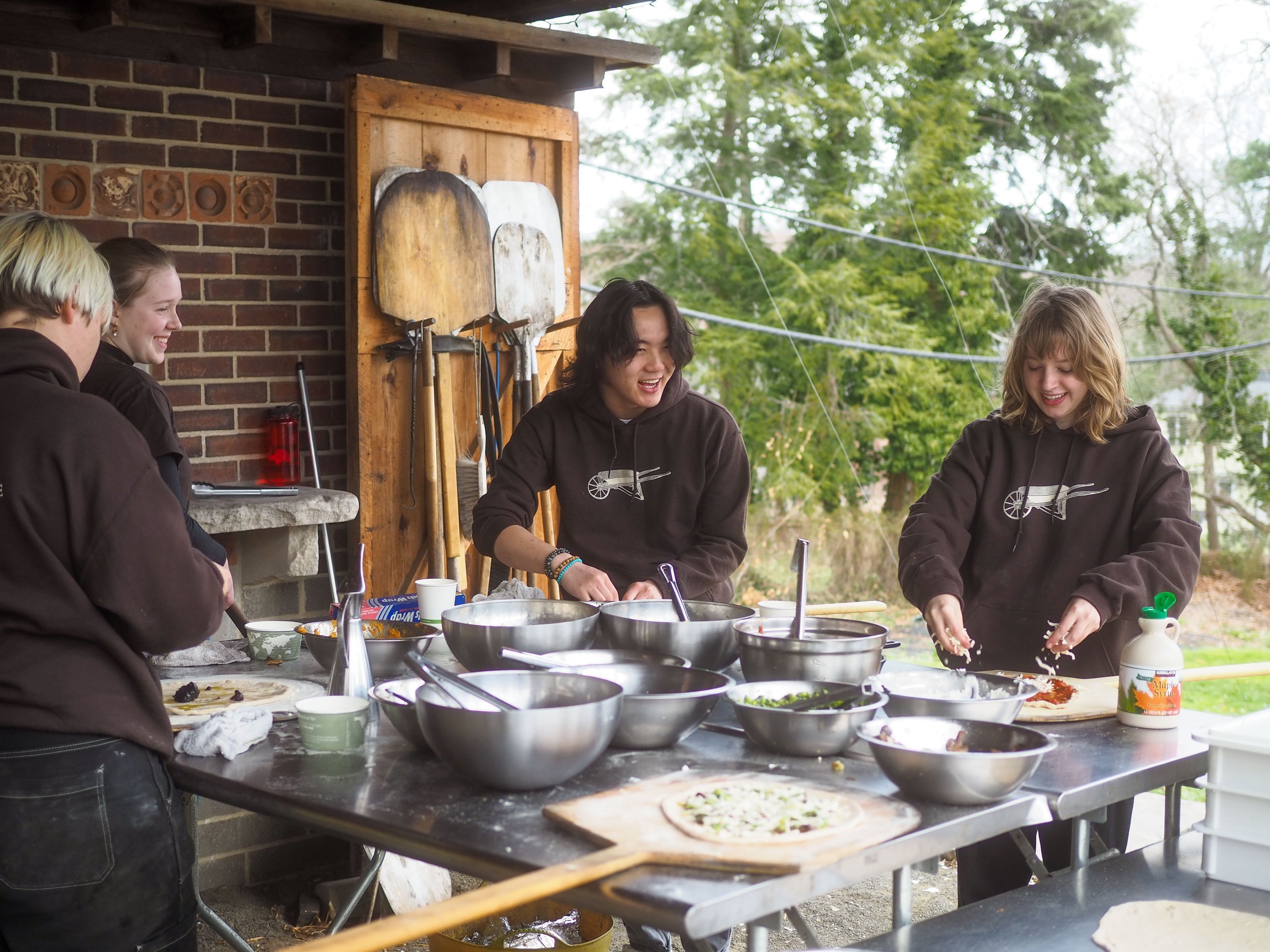
The warm spring weather has brought new life to the Farm. The chickens are back in their coop, their clucks mixing with the sound of human conversations. At last Friday’s workday, students nurtured the Old Acre's budding sprouts: sowing snow peas, weeding our asparagus and sage, and scuffle-hoeing the fertile soil in the garlic beds. They got their hands dirty turning over the soil in a field which has lain fallow for the last five years—a task that left dirt caked under many fingernails—then headed to the Lazarus Pavilion for fresh pizza topped with mushrooms, pesto, and three kinds of potatoes.
While students ate, they listened to a knead 2 know from Nisreen Abo-Sido MEM '23, a YSE-YSFP liaison and Agroforester-in-Residence at the Farm. Abo-Sido’s undergraduate education was in the hard sciences, but after a fellowship living and working in rural communities internationally, she developed an interest in the economic, social, and political factors that shaped farmers’ abilities to earn a living and employ sustainable, agroecological practices. Abo-Sido shared her insights from working with New Haven’s Food System Policy Division (FSPD) last summer, where she explored how policy can create systemic change and promote more environmentally sustainable and just food systems. She connected contemporary inequities in food systems to the legacies of redlining and urban renewal, noting, “If policy was a part of the problem, we can also imagine that policy needs to be a part of the solution.” Eighty percent of New Haven residents live within half a mile of an urban farm, community garden, or farmer’s market, but there are still barriers to access, like a lack of information and financial resources, the absence of citywide efforts to connect urban growers with market opportunities, and continuous disinvestment in Black and Brown communities.
Participatory processes are crucial to changing these systems, as seen in FSPD initiatives like the Community Advisory Board. The Division has also received a USDA grant to increase education and access to “specialty crops”—fruits, vegetables, tree nuts, and other non-commodity crops. With the grant money, they are running community workshops on topics like beekeeping, connecting farmers and cooks within New Haven, and establishing a seed library in community spaces. In addition, the FSPD is working to expand values-based procurement practices.
Many thanks to Abo-Sido for her informative and thoughtful presentation. We also thank all the students who joined us last Friday, and those who visited the Farm on Saturday for Battle of the Bands, where student performers competed for a chance to perform at this year’s Spring Fling. This week, we’ll have another workday at 2:00 PM and a knead 2 know at 4:15 PM by Sasha Carney ’23. Photos from the workday by Reese Neal '25 are available here.
